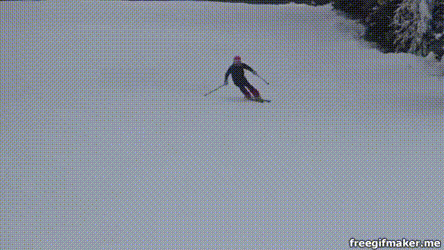Square
Pub
Share
You'll sometimes hear this notion of being "square" to the skis. What it means is that the hips and shoulders follow the boots/skis and are on top, without any separation.
This is in direct opposition to the notions of separation, counteraction, countering, coiling etc.
There are several schools of thought that advertise stying square to the skis in medium/long turns, this goes contrary to The wall and Coiling.
Although square and stacked are different, the video below shows also a rather "square" approach.
In our mind, separation is the one overriding principle of great skiing and you are only truly square to the skis in the fall-line when both the skis and the upper body face down the hill. Throughout the rest of the turn, the upper body should be always separated from the rotation of the lower body. This is more so in slalom and less so in GS and speed skiing and certainly depends on several factors, including line and turn shape, balance etc
Usually you are the least square around the transition, this is when the skis are across the slope. This is separation, the opposite of "square", with both counterbalancing and Coiling:
"Square" is a similar issue as using a wide stance. It will perhaps feel more "stable" at low speeds and relaxed skiing, when weighting both skis, but will become a hindrance when we actually weight just one ski, which is what we want even on the green slopes. When we are committed to the outside ski, if the inside ski is far apart, it will just make it harder to edge the skis and balance.
Rotating with the skis through the turn and staying square to the skis also reduces balance. As you can see in the racer's photo above, the biggest range of motion exists when we counteract the skis through the turn and we need range of movement, to maintain balance.
See Braquage, Separation, counteraction, countering, Coiling.
Drills:
Sessions:
You need to log in to post a comment!


